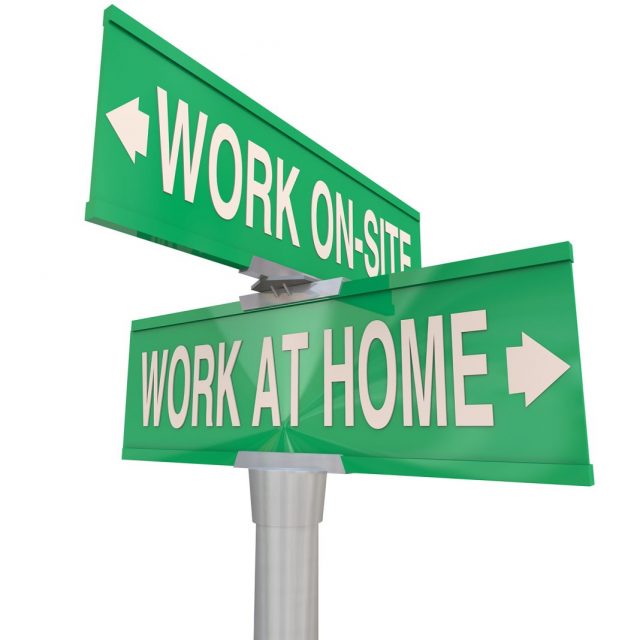A recent survey has found that nearly the entire workforce prefers a return to office working should an effective Covid-19 vaccine be discovered.
The poll, by serviced office provider Office Space in Town (OSiT), revealed that ninety-five per cent of those surveyed favour a return to the office if a vaccination against Covid-19 becomes a reality, but would desire greater flexibility over their working hours in that event.
The survey also indicated that health concerns remain a major hurdle to a return to office working in the short term, with the findings identifying a “worker wishlist” of safety precautions that staff would expect in order to work comfortably and securely.
OSiT claim that the survey has uncovered “the hidden impact of lockdown remote working on wellbeing and health”. With seventy per cent of respondents working from home, sixty-four per cent said that their companies had not offered practical guidance to enable them to make their homes compliant with health and safety regulations, with some respondents reporting cases of neck pain, back pain and shoulder complaints.
The research corresponds with a survey by the British Council for Offices (BCO) in May that found that just one in five (twenty per cent) of UK adults plan to primarily work from home in the future, and only sixteen per cent hope that home working replaces the office.
Twenty-nine per cent of respondents to the OSiT survey reported a lack of suitable equipment as a disadvantage to home working, whilst another twenty-nine per cent felt that loneliness was the biggest downside to working from home. Thirty-seven per cent of those polled cited a lack of ability to disconnect from work at home as a major disadvantage, and a quarter (twenty-five per cent) reported feelings of anxiety.
With only eight per cent of respondents working from their normal office, just five per cent of those polled indicated a desire to be working remotely on a full-time basis if an effective vaccine is developed. However, working from home during lockdown has had an effect on the expectations of office working: of the ninety-five per cent that do want to return to the office, over half (fifty-nine per cent) expressed a preference for greater flexibility in their working hours.
The findings also revealed a “worker wishlist” of safety measures that workers now expect in order to return to the office with confidence. Over two-thirds of respondents expressed concern over contamination and over sixty per cent said that extra cleaning measures would make them feel more comfortable about working with others. Fifty-two per cent would like to see social distancing markers in the workplace, a further fifty-two per cent expressed a requirement for face masks and gloves at the office, fifty per cent want hand sanitisers available at all desks and thirty-six per cent would like “sneeze screens” installed at their workplace.
The report indicated that there are, however, some benefits to home working: seventy-two per cent of those surveyed agreed that avoiding their commute was the main benefit to working from home and fifty-four per cent indicated that spending more time with their family was another major benefit. Key disadvantages were missing out on collaboration with colleagues (thirty-two per cent) and the increase in distractions (forty-two per cent). Fifty-two per cent of respondents felt that working from home did not improve their work-life balance, whilst thirty-four per cent said a key drawback to home working was the lack of a dedicated workstation.
Commenting on the results, Niki Fuchs, managing director of OSiT, said: “The survey results show that, given the chance, people would significantly prefer to be in the office. It seems that working from home is neither a sustainable option for the majority of people nor for their employers. We thrive on the water cooler moments, in-person collaboration and development opportunities cultivated in the physical office, where a professionalised environment fosters productivity and community.
“The potential cost of permanent remote working to workers’ wellbeing and health is also concerning, with these results indicating issues from a lack of dedicated space and suitable working equipment to the mental health impact of blurred work-life boundaries, which are not simply going to disappear in the longer term.
“As we all look ahead to getting back to the office safely, employers and office providers should remember they have a responsibility to ensure people feel comfortable to return to work. The steps unveiled in this survey offer a simple, realisable roadmap for this – provide a clean environment and offer flexible hours to encourage people back to the office and back to normality. It’s what the majority of workers want – so, let’s deliver it for them.”
7th July 2020.









